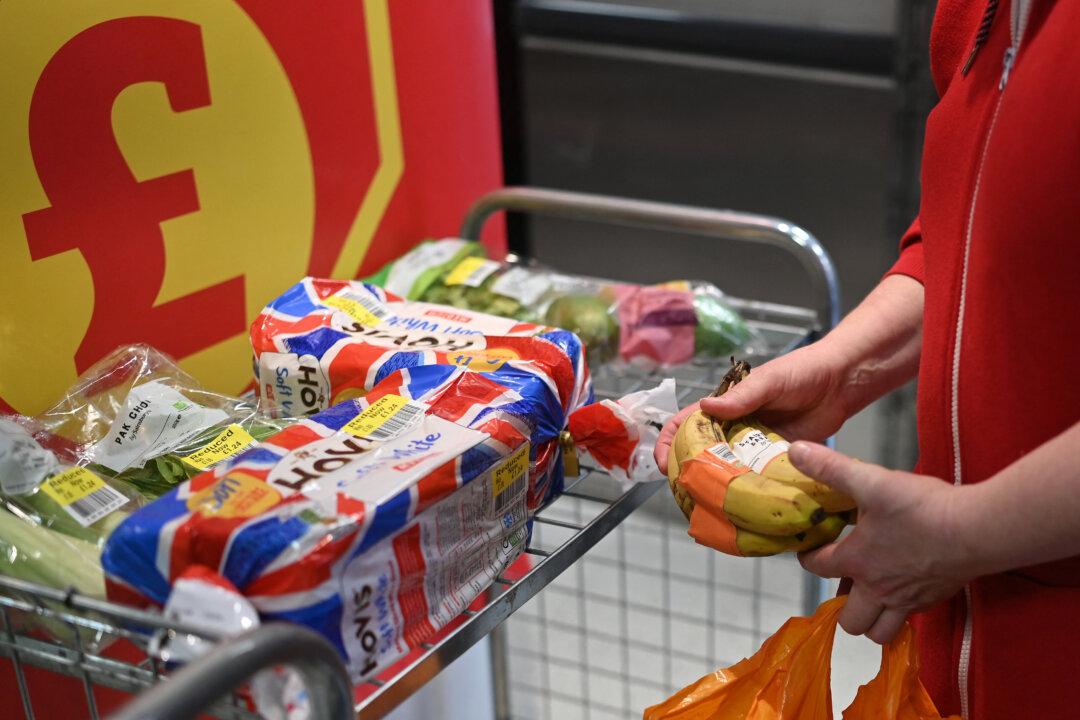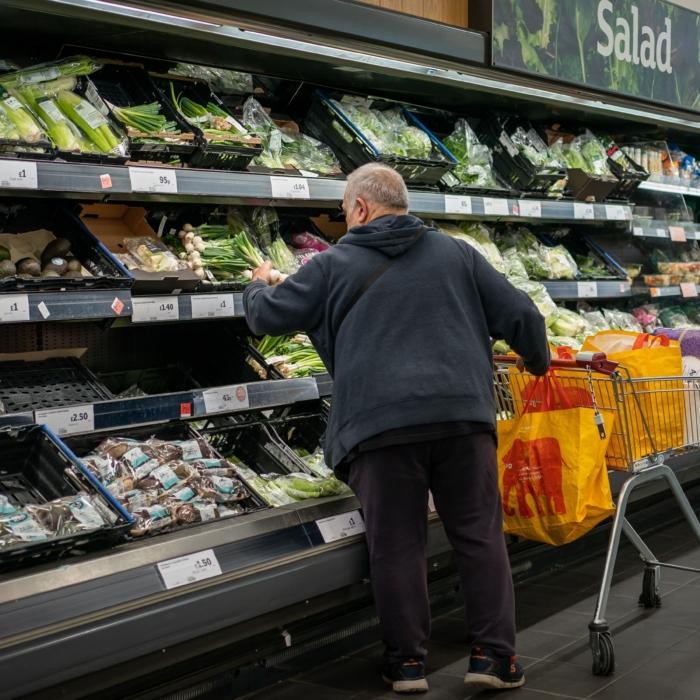Food inflation has reached its lowest level since December 2021, aided by easing costs for key products such as butter and coffee, the British Retail Consortium (BRC) reported on Tuesday.
Data in the shop price index by the BRC and the retailer and business insight company NielsenIQ recorded a drop from 3.2 percent in May to 2.5 percent in June.
Consumers saw food prices ease to an average rate of 3 percent in a 14th consecutive deceleration and lowest inflation in the food category since December 2021.
The cost of both fresh and ambient foods went down below the three-month average rate and was at a record low in June.
In the fresh food category, inflation slowed to 1.5 percent, which is lower than the three-month average of 1.9 percent and the lowest rate since November 2021.
Ambient foods, such as pasta, spices, flour, and oils, saw inflation ease from 4.8 percent in May to 3.9 percent in June. This represents the lowest rate since April 2022 and stands below the three-month average of 4.5 percent.
In the past several years, UK businesses have been affected by disruptions to global supply chains and market instability, as a result of the conflicts in Ukraine and the Middle East, the COVID-19 pandemic, increased tension in the Taiwan Strait and South China Sea, and the attacks in the Red Sea and Gulf of Aden.
To mitigate the impact of global shocks on input costs, retailers have been investing heavily in their operations and supply chains, said the BRC.
Retailers and Policymakers
Retailers in June tried to drive sales by discounting, leading to deeper deflation in non-food prices. This was the case in sales of TV sets, as retailers attempted to capitalise on football fever in light of the 2024 UEFA European Football Championship kicking off this month.The news of a slowdown in food price inflation comes two days ahead of the general election.
Economic growth has been on the forefront of the political parties’ manifestos. Policymakers have pledged to bring inflation and interest rates down, boost investment in business, and alleviate the pressures of the cost-of-living crisis.
“Whoever wins Thursday’s election will benefit from the work of retailers to cut their costs and prices, easing the cost of living for millions of households. The last few years should serve as a warning that where business costs rise significantly, consumer prices are forced up too,” said Ms. Dickinson.
The BRC has called on the next government to address major cost burdens for the retail industry, including the business rates system and the apprenticeship levy.
“By doing so, retailers can invest in lower prices for the future – helping to reduce the cost of living pressures that many families face,” Ms. Dickinson said.
The BRC also reported that shop price inflation was easing. It slowed from 0.6 percent in May to 0.2 percent in June, in the lowest annual growth since October 2021.
“Shop price inflation is still slowing and this will be of help to shoppers as they plan their household budgets for essential goods and services. And with uncertainty around discretionary spending, we expect the intense competition across the marketplace to keep price increases as low as possible this summer,” said Mike Watkins, head of NielsenIQ.
While the cost of food appears to be on a downward trajectory, a growing number of Britons still have to turn to food banks.
The trust’s Chief Executive Emma Revie said that food banks should not be the new norm and called on the new government to deliver a supportive social security system.







